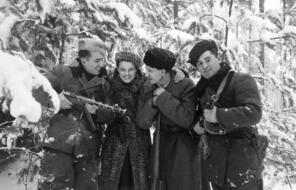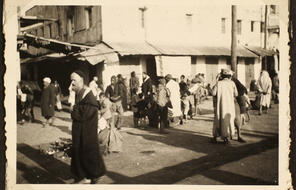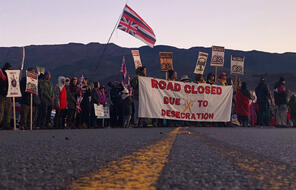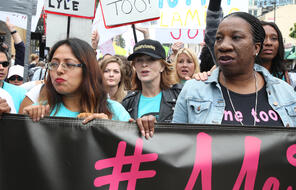Joining the FPO
At a Glance
Language
English — USSubject
- History
- The Holocaust
- Resistance
Vitka Kempner was born in 1922 in Kalisz, Poland, on the Polish-German border. When she was 17, Kalisz fell to Germany in the first days of the war. Sensing danger, Vitka left her family and made her way to Vilna, which, like much of Eastern Europe, was controlled by the Soviet Union. When Operation Barbarossa, Germany’s attack on the Soviet Union, was launched in 1941, Vilna was occupied, and the Jews were forced into a ghetto.
In the Vilna Ghetto, Jews were forced to work in factories or on construction projects. Some were sent to labor camps in the Vilna region. In periodic killing operations, most of the ghetto's inhabitants were massacred at Ponary, a murder site for the Jews of the Vilna Ghetto and the surrounding area. In order for the Nazis to move people from Vilna to Ponary, they were deceived. Occupying forced told Jews that they were going to a labor camp. Only between 2,000 and 3,000 of the 57,000 Jews of Vilna survived.
The archives of the Ringelblum Jewish Historical Institute in Warsaw contain this anonymous account of the living conditions in the Vilna Ghetto:
It was extremely crowded, with 20 people in each room who slept on the floor, one next to another, or on stools. The worst thing was the sanitary conditions and people dreamed about the possibility of taking a shower. In the backyards, people would queue in long lines before the lavatories. . . . Starvation and misery were acute, there was no food but what they got on coupons, and that included 17 grams of bread per day and a very small amount of some different food. No money could be made at all. There was no trade.
In the Vilna Ghetto, in January 1942, Vitka joined other youth to organize the Jewish resistance efforts into a larger collective called the United Partisan Organization, or FPO. Members of the FPO had to be from youth movements and “fit for armed underground action.” Vitka was responsible for the FPO's first act of sabotage: smuggling a homemade bomb out of the ghetto and blowing up a German train line. When carrying out resistance operations from within the ghetto became too difficult, the partisan group left to join larger partisan groups in the forest.
In the following interview excerpt, Vitka recalls the founding and mission of the FPO.
The purpose of the FPO was complex. [F]irst, we saw ourselves as the representatives of the people, and we asked ourselves, What needs to be done in this complicated situation? [W]hat is the way out in a no-way-out situation? And since we considered ourselves to the representatives of the people—we were, after all, a pioneer movement—we asked ourselves, What now? And the answer was that we want[ed] to organize . . . missions against the Germans in order to preserve the dignity of the people [and show] that is not possible to kill the Jews like the Germans really wanted to, like fleas. What the Germans did, and that was the most terrible thing, they related to the Jews as to fleas. And it isn’t a problem for anybody to kill fleas. In the moment, when they succeeded, everything else was simple. The people were stripped of their dignity; they didn’t feel like human beings, so it was easy to kill them. And we decided that we would fight as the representatives of the people, for the—actually for dignity. 1
- 1 © 2004-2016 Jewish Partisan Educational Foundation. All Rights Reserved.
How to Cite This Reading
Facing History & Ourselves, "Joining the FPO," last updated May 12, 2020.
This reading contains text not authored by Facing History & Ourselves. See footnotes for source information.











